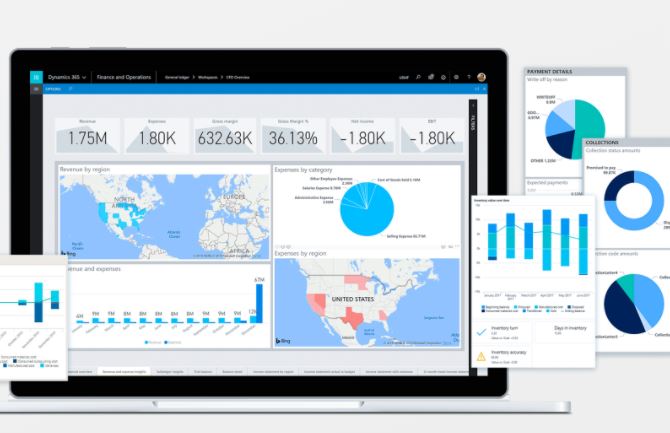Microsoft gets ready to roll out its 'Tenerife' cloud ERP service for SMBs

Microsoft's"Tenerife" ERP service for small and midsize businesses (SMBs) has an official name and launch date. Dynamics 365 Business Central will start rolling out on April 2 via Microsoft's Cloud Solution Provider channel.

Beyond that basic information, Microsoft isn't disclosing much about Business Central. I asked for pricing, migration and other information but didn't receive answers to any of my questions (so far).
Update No. 1: Microsoft's Business Central website is now live. It lists two versions of the service: Essentials for $70 per user per month and Premium for $100 per user per month.
Quite a bit is already known about Business Central/Tenerife, even though details which have emerged -- from Microsoft itself and others -- about this software-as-a-service offering have been vague and conflicting.
Microsoft officials prefer not to use the ERP/CRM monikers in discussing their Dynamics product line, even though this is what Dynamics software and services are.
Business Central has its roots in the Dynamics NAV ERP platform. Back in 2016, Microsoft officials talked up "Project Madiera," describing it as a new software as a service offering built on the NAV platform. This debuted as Dynamics 365 Financials, Business Edition.
Last year, Microsoft officials decided to do away with the Enterprise/Business distinctions in the Dynamics product line, instead offering different CRM/ERP modules to customers of any size. At the same time, the company is continuing to update its original NAV, Great Plains and AX ERP on-premises offerings.
Business Central, at its simplest, is NAV in the cloud, hosted by Microsoft and sold by partners. Microsoft rolled out its latest on-premises NAV release, Dynamics NAV 2018, starting in December.
Microsoft is touting NAV 2018's integration with Office 365, Dynamics for Sales, Cognitive Services (for image recognition of inventory items, contacts, etc.), Power BI and Flow as its major selling points. Business Central and this latest version of NAV largely share the same code base.
Business Central is considered to be the replacement for Dynamics 365 Finance and Operations, Business Edition, best I can tell. According to MSDynamicsWorld.com, Business Central will be available in three flavors: Essential, Premium and Team Member.
The SMB finance/operations space has lots of room for more competitors, especially cloud-centric ones.
"The 'what do we do after Quickbooks?' niche has always had a decent volume, and these companies are eager to move to the cloud for all the right reasons -- cost, security, modernization, new user experiences," said Joshua Greenbaum, Principal with Enterprise Applications Consulting.
"Business Central has some interesting competitors, companies like Acumatica (home of some ex-softies, CEO Jon Roskill and board member Kirill Tatarinov) are doing very well tackling this end of the market with cloud ERP. Rootstock in the Salesforce.com ecosystem is another. It's pretty obvious Business Central and the like are also gunning for the starter-Netsuite market, which many perceive is wide open these days," Greenbaum said.
Greenbaum added that one of Microsoft's biggest challenges and missions is to improve the way it's communicating about its Dynamics 365 plans and strategy to customers, partners and the analyst/journalist community. I could not agree more.
Update No. 2: A few answers to some of my questions about Business Central are starting to come in. Answers are from a company spokesperson:
How often will MS be updating Business Central? Do users have to take all updates immediately?
A: Microsoft is planning to make minor monthly updates and major updates every six months.
Will all the same plug-ins/customizations for NAV 2018 also work with Business Central?
A: Extensions based customization and solutions built for NAV will just work with Business Central. It is an evolution of NAV, not a completely different platform.
Does Business Central use/rely on Common Data Service? What about Microsoft Graph?
A: Business Central will write data into the Common Data Service. CDS will have an API to expose data for Dynamics 365, Microsoft Graph API will expose data for Microsoft 365 service. These two APIs will co-exist.